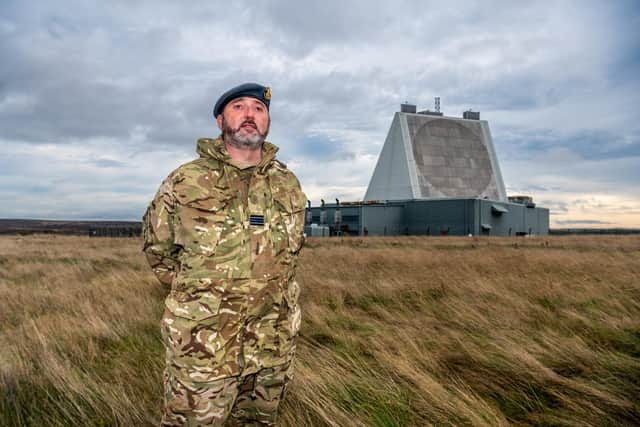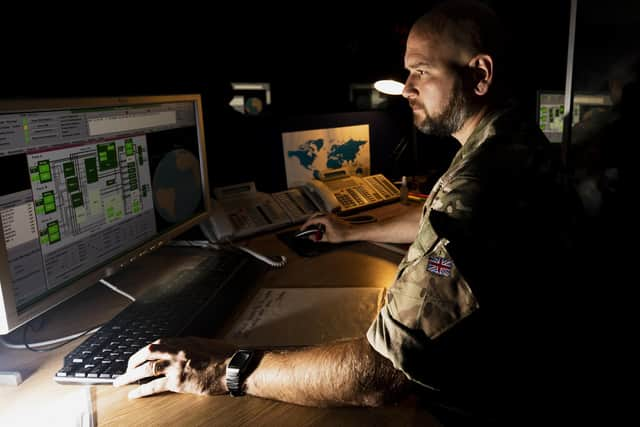Space junk, dead satellites and a plane called Cosmic Girl - all in a day's work at RAF Fylingdales
One of the most sophisticated radars in the chain of Ballistic Missile Early Warning sensors, it came into service on October 1, 1992, replacing RAF Fylingdales’ famous “golf balls”. So far it has prevented Armageddon.
As Flt Lt Rich Weeks, from the base, puts it: “We are the ultimate insurance policy. Nobody will be able to launch a sneak attack without us knowing. It’s part of the peace process and it enables nations to be relatively honest with each other.”
Advertisement
Hide AdAdvertisement
Hide AdIts primary purpose is to give the British and US governments warning of an impending ballistic missile attack, but it does much more.


A small team – a crew commander, crew chief and three space consul operators – keep up constant surveillance of the skies up to 3,000 miles over them in a room “a bit like mission control”.
Feeds into screens give them a picture of what their radar and others at some 20 sister sites in the US can see.
Space is getting increasingly busy, with some 28,000 objects, the size of a Coke can or bigger, now flying about. ‘Space junk’ – which includes dead satellites – travels at speeds up to 17,500mph, fast enough to do a lot of damage to a live satellite or a spacecraft. “There are still objects from the 1960s going round,” said Flt Lt Weeks. “If a satellite collides with objects it spreads debris everywhere and it stays up there. Things the size of my fist will destroy a satellite.
Advertisement
Hide AdAdvertisement
Hide Ad“We have a timetable of things we expect to see and what we are interested in. We are very interested in satellites both civilian and military and we want to know where they are and when they are going to be passing certain places on Earth.”


There are large numbers of new satellites in space. Elon Musk’s SpaceX has over 2,300 Starlink satellites in orbit, which have been hailed as a gamechanger by troops in Ukraine, CNN reports. Small satellite dishes allow soldiers to fight and stay connected even when their own phone and internet networks have been destroyed.
The majority, though, Flt Weeks said, are for civilian use – providing everything from global internet access to instant money transfers and Sky TV. In the coming weeks, the base will play an important role in the first-ever orbital launch from the UK, sending data to UK Space Command at RAF High Wickham. A modified Boeing 737, called Cosmic Girl, will climb to 35,000 feet over the Irish Sea sea. The radar will be able to see it pitch up and release a rocket from under its wing which will then ignite taking the satellite into a parking orbit around the earth. The second stage of the rocket will then ignite to take eight small satellites for a range of government and commercial customers into their correct resting orbit.
